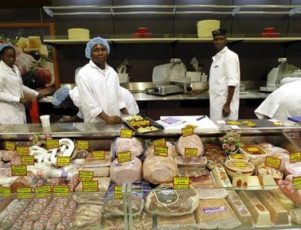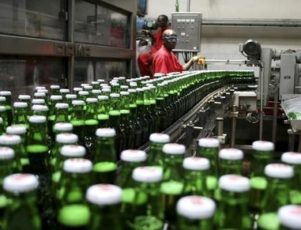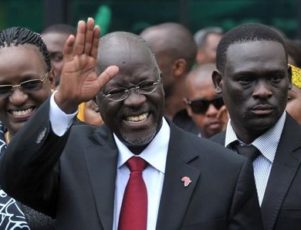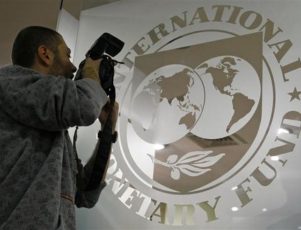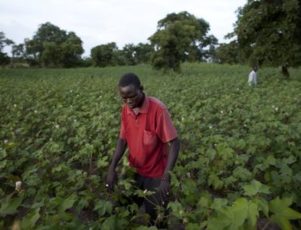CAPE TOWN (Reuters) – South Africa announced an austere budget on Wednesday aimed at avoiding cuts in its credit ratings, and vowed to focus spending on priority areas after weak economic growth reduced its revenue.
The measures may appease ratings agencies, which have said they might lower South Africa to sub-investment grade after President Jacob Zuma changed finance ministers twice in less than a week in December, casting doubt over Pretoria’s commitment to prudent fiscal policy.
Still, the package of spending cuts, civil service job freezes and moderate tax hikes on property sales, fuel, alcohol and capital gains may not go down well with voters ahead of municipal elections this year in which the ruling African National Congress faces a stiff challenge from the opposition.
“We cannot spend money we do not have. We cannot borrow beyond our ability to repay. Until we can ignite growth and generate more revenue, we have to be tough on ourselves,” Finance Minister Pravin Gordhan told parliament.
The tax hikes should help raise an additional 18.1 billion rand in revenue in 2016/17, he said.
Asked if the budget was enough to stave off ratings downgrades, Gordhan told ENCA news channel: “That’s what I hope.”
He said the economy may expand just 0.9 percent in 2016, down from a previous forecast of 1.7 percent and compared with estimated growth estimate of 1.3 percent in 2015.
It would be the lowest rate of growth since South Africa emerged from recession in 2009 and would reflect the impact of a severe drought and a sluggish global economy.
Growth has now fallen behind the rate of population increase, resulting in declining per capita incomes, the National Treasury said in a budget statement outlining spending plans for the next three years.
“In other words, the average South African is becoming poorer,” it said.
The rand extended losses over the lower growth forecast, trading 2.5 percent weaker to the dollar on the day.
“I would say the rand weakened so much immediately after the budget was released primarily because of the lack of sufficient reforms to tackle South Africa’s economic problems,” London-based EMEA analyst at 4cast Rajiev Rajkumar said.
“Whilst the lower projections for the budget deficit are a plus, ratings agencies previously said the country’s weak economy could be cause for further ratings downgrades to junk status.”
The cost of insuring exposure to South African debt via credit default swaps rose 17 basis points (bps), indicating investors’ disappointment with Gordhan’s budget.
NARROWER DEFICIT
Despite weaker growth, the government would still aim to reduce its budget deficit to 3.2 percent of GDP in the next fiscal year from 3.9 percent in the current 2015/16 period by tightening spending.
Fitch and Standard and Poor’s have South Africa on BBB-, just a step into investment grade. Any further cut would label them as junk status. The third main ratings agency, Moody’s, rates South Africa at Baa2, two notches above junk.
Moody’s said last week the drought risked tipping an already weak economy into recession as rising agricultural imports feed into rising inflation.
The Treasury said a credit downgrade to sub-investment grade, or “junk” status, could trigger a sharp reversal of capital flows and precipitate recession.
“In such an event, aggressive austerity measures would likely be required to restore public finances to a sustainable position,” it said.
The Treasury said it had cut government departments’ budgets for non-essential services, would borrow $4.5 billion from global markets over the next three years, and seek a minority equity partner after merging two of its state-owned airlines.
(By Stella Mapenzauswa and Olivia Kumwenda-Mtambo. Additional reporting by Wendell Roelf in Cape Town and Mfuneko Toyana in Johannesburg; Editing by James Macharia and Hugh Lawson)
Read more

